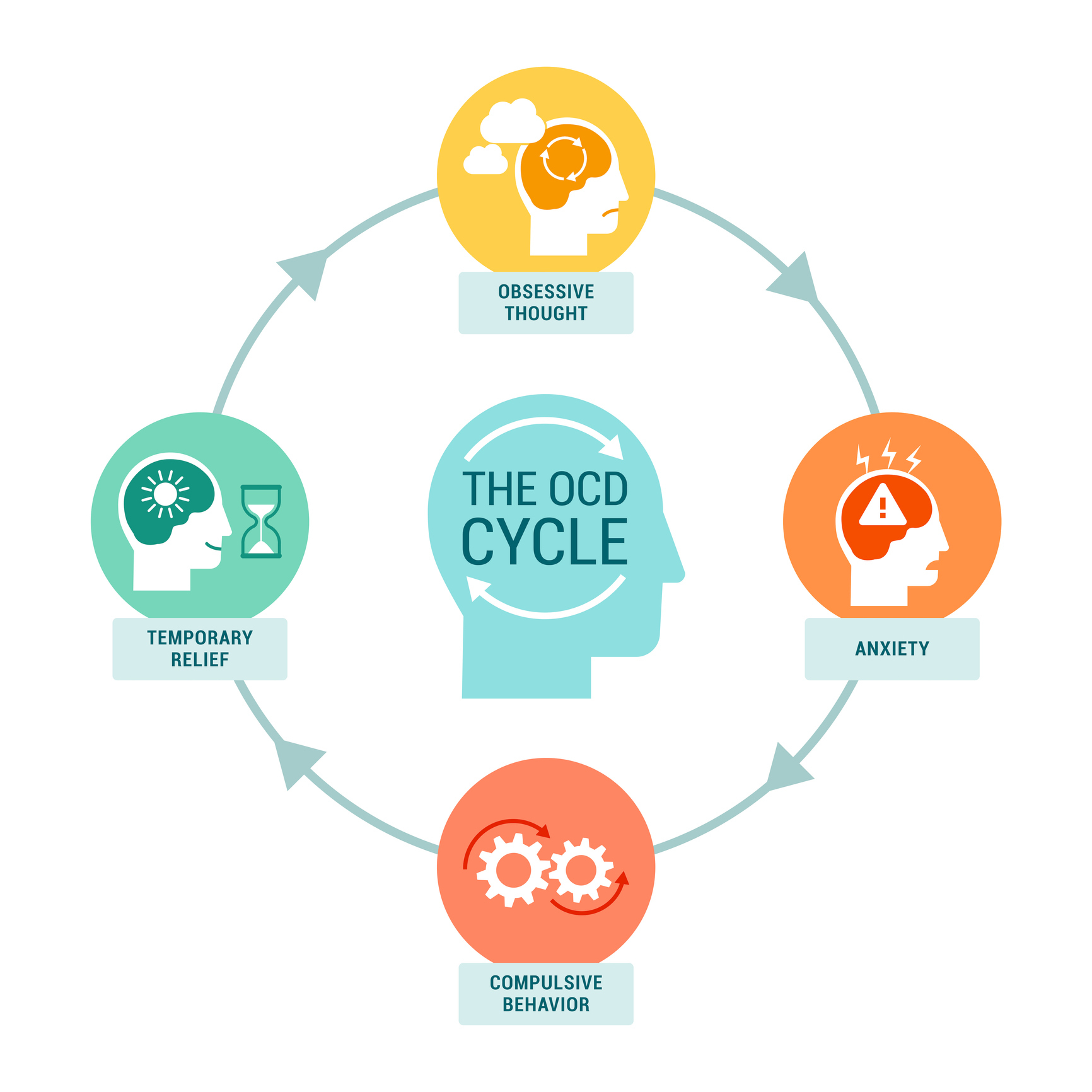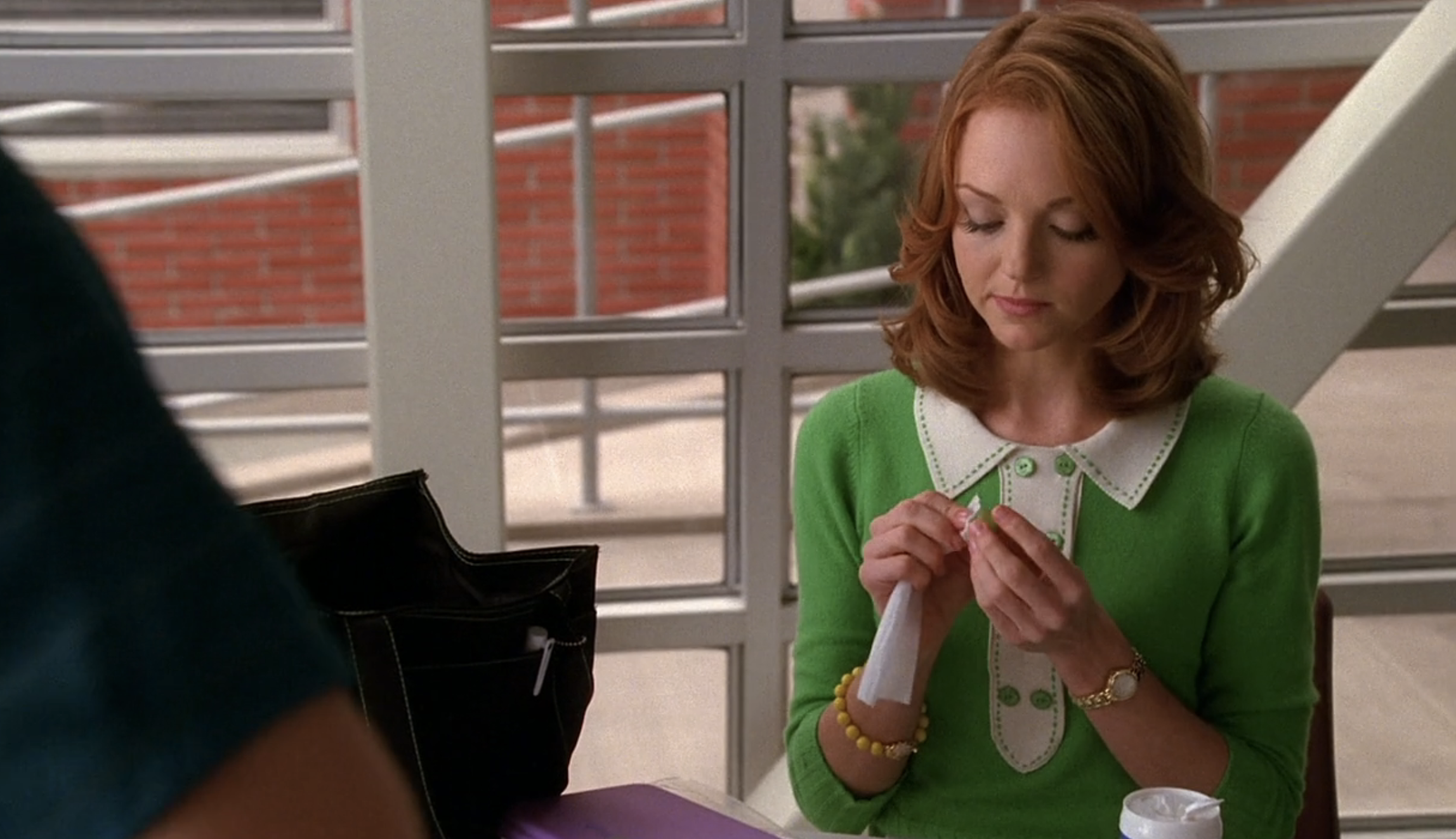I was 26 when my therapist told me that, according to the answers that I gave to a diagnostic test, I fell within the range of “severe OCD.” I told him that I was worried that I had somehow lied or exaggerated my answers. In turn, he said that that was a very OCD thing for me to say.
According to some Googling I did, most people are diagnosed with OCD at age 19. I do like being above average!
At that point, I had been in therapy on and off for a decade. OCD wasn’t the only thing I had been diagnosed with up until that point — six different diagnoses thus far, some of which still apply, some of which don’t.
But, to a certain extent, I believe the relative slowness of which I learned about my OCD stemmed from two things: I’d spent much of my time in therapy “fire-fighting,” or dealing with various crises, up until that point, and I also really, truly did not understand what OCD was.
In some ways, it started with a water bottle. I was in a good place with my therapeutic work — I had been sober for over a year, my relationships were pretty stable, I generally felt optimistic about the future. During a relatively uneventful session, I remarked to my therapist, “Hey, I do this weird thing with my water bottle.”
Let's talk about my water bottle. I have a fairly large, sparkly, pink resin-coated aluminum bottle that I bought off Etsy. For the past five years, I have carried the water bottle around with me everywhere I go. A walk down to the end of the street? Water bottle. Going to someone’s house? Water bottle. Dining out? I’d really prefer my water bottle.

But hey, maybe I just want to keep hydrated! It’s fine, really, just a bit quirky. I mean, who cares if I can’t wear cute, small purses because they don’t accommodate my water bottle?
If I’m being brutally honest, the water bottle isn’t the problem. The real problem is the blaring thoughts that my throat is going to spontaneously constrict, I’ll stop breathing, I’ll pass out, and I’ll make a huge, embarrassing scene. Now, reading this, you might say, “Well, Tasha, that’s ridiculous.” And, yes, on one level, I know that. On another level, though, there exists the thought: What if?
At some point, I arrived at the conclusion that if I was able to drink water, I therefore couldn’t also be choking — so, I should carry my water bottle everywhere to reassure myself that my throat isn’t actually closing up. At this point, not having my water bottle on hand at all times can cause extreme anxiety and distress.
To me, my water bottle encapsulates the building blocks of OCD: Obsession (persistent, unwanted, intrusive, and distressing thoughts that I’m going to choke), compulsiveness (always carrying around said water bottle in an attempt to temporarily alleviate distress), and disorder (it’s all the time, baby).
All of us have intrusive thoughts on some level, but it’s the frequency and the intensity of these thoughts that can distinguish them as emblematic of OCD.

After the disclosure about my water bottle, my therapist subsequently had me list out any obsessions and compulsions I performed within the span of a typical week — and, as it turned out, the water bottle was the tip of the proverbial iceberg.
Boy, I have to say, that was a brutal Notes app entry.
I learned that my obsessions typically center around harming myself or others — especially the idea of suddenly “snapping” and losing control — as well as my relationships. Compulsions didn’t have to be physical acts; they encompassed excessive rumination, repeating phrases, re-reading things over and over again, and repeatedly checking that something catastrophic wasn't about to happen.
I think the manifestation of compulsions is something that society at large gets very wrong about OCD. We’ve all seen characters who just have to have things neat, or clean things over and over again, or hit a light switch on and off 17 times. To a certain extent, it makes sense — it’s much easier to show Emma Pillsbury individually scrubbing grapes than to dramatize my interior monologue when I’m convinced that the Diet Coke can I’ve been given actually contains illicit substances.

Something that’s massively overlooked about OCD is how upsetting and distressing the obsessions can be. I’ve seen plenty of TikToks about “giving into your intrusive thoughts” that present a certain air of whimsy or oddity. Conversely, some of my intrusive thoughts can be incredibly violent. They work so well because I do not want to hurt people — otherwise, it wouldn't be anxiety-inducing. But I didn't know that, so kept all of it to myself.
I mean, why would I want to tell my boyfriend that, actually, I don’t want to watch the cannibal episode of The Last of Us, because I’m worried that it will inspire horrendous, graphic thoughts? Lives are at stake! Pedro Pascal isn’t worth it! (My boyfriend is very nice about all of this, and I did watch all of TLOU).
I did not take my diagnosis with stoic grace, but it has enabled me to actually work on it. While I’m learning what exactly my compulsions and obsessions are, it can sometimes feel more anxiety-inducing than when I was in self-deluded ignorance.
I’m currently doing Exposure Response Therapy, where I have to essentially force myself to do triggering behavior, and I’m in an OCD support group. That brings up another thing that I wish people understood: that therapy work can be intensive and exhausting. The amount of hours I spend working on my mental health rivals a second job. And, even then, I can still have flare-ups where I feel utterly consumed.
That being said, I'm utterly done feeling shame around any of this. It's not my fault! I'm doing my best!
Moving forward, I hope for a world in which people have an understanding of OCD where all the symptoms can be recognized for what they are. I am in a position of immense privilege, given that I have the resources and the time to have therapy — and much of the changes that need to be made are systemic and beyond the scope of any one piece.
For myself, I know that removing some of the shame around sharing helps me immensely. Seeing someone else nail the intrusive thoughts I feel helps me more readily tackle them. And, at least for now, I go on walks without my water bottle.
The National Alliance on Mental Illness helpline is 1-888-950-6264 (NAMI) and provides information and referral services; GoodTherapy.org is an association of mental health professionals from more than 25 countries who support efforts to reduce harm in therapy.
